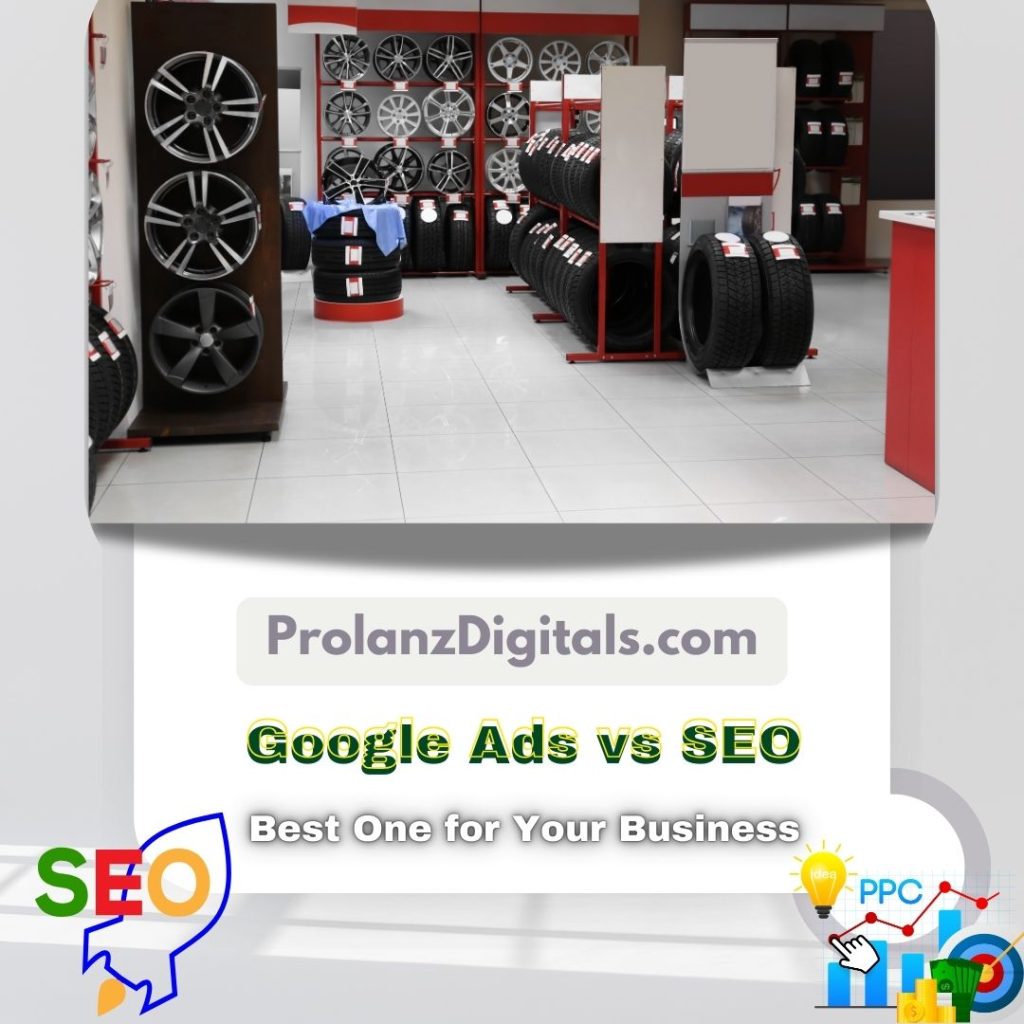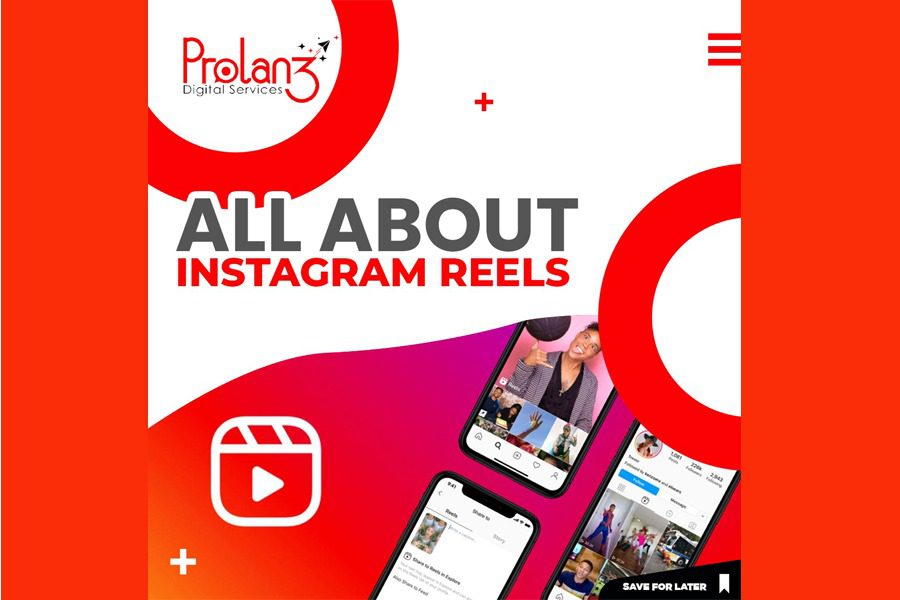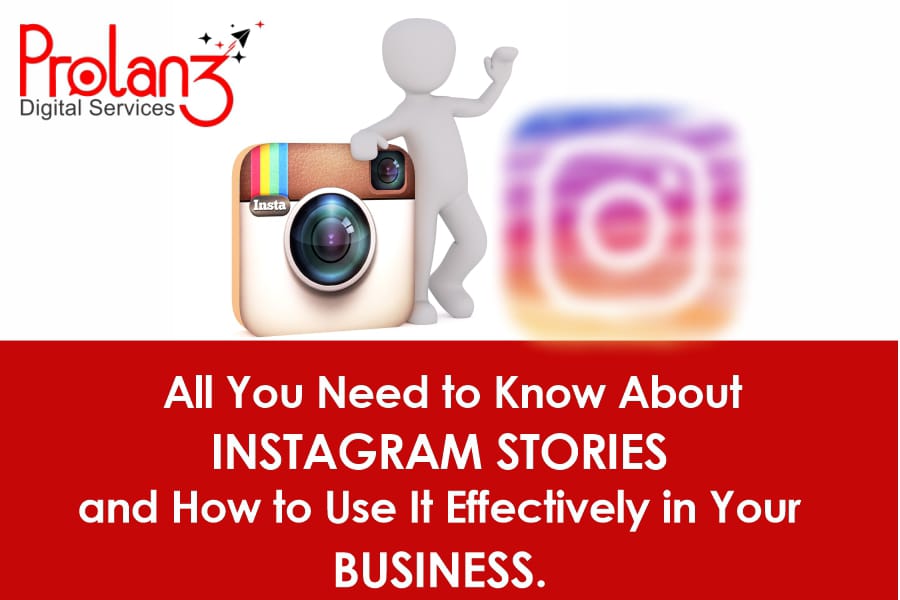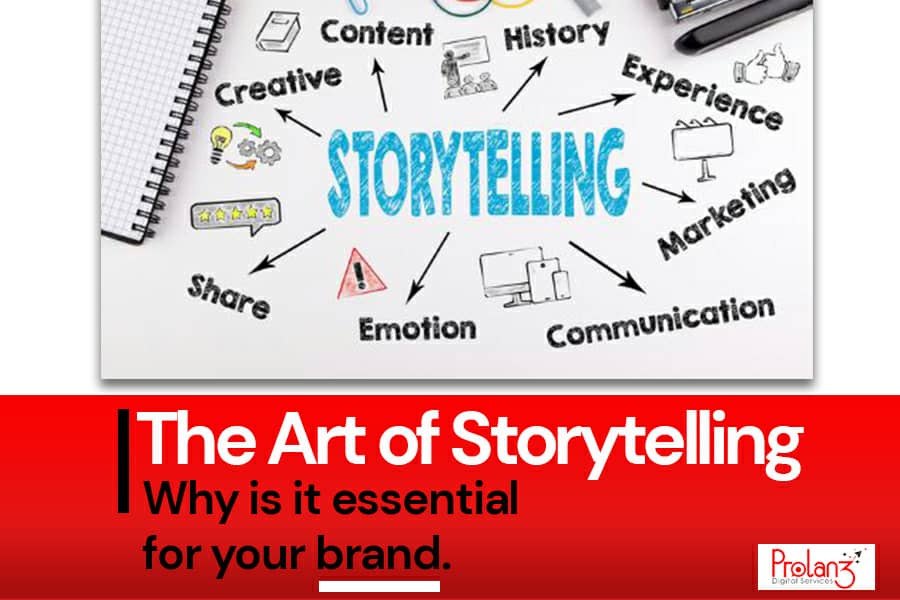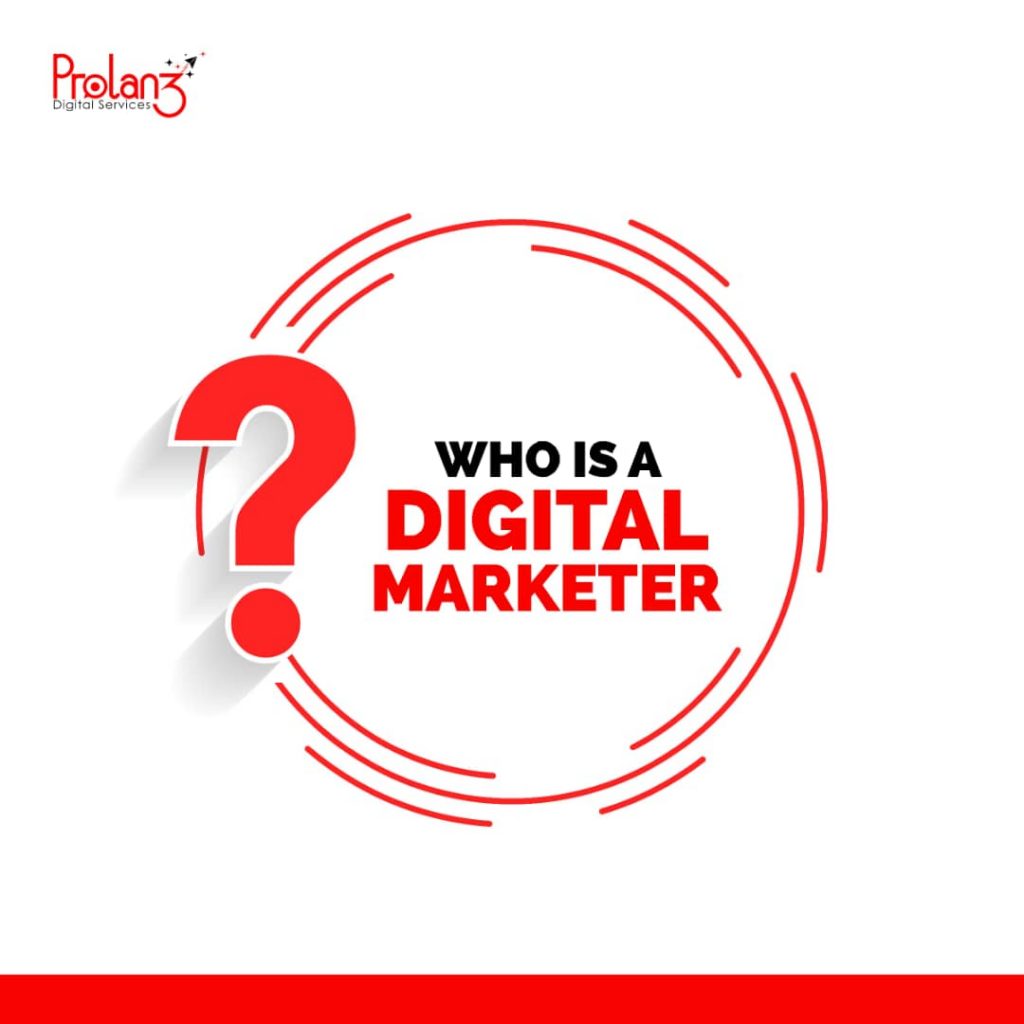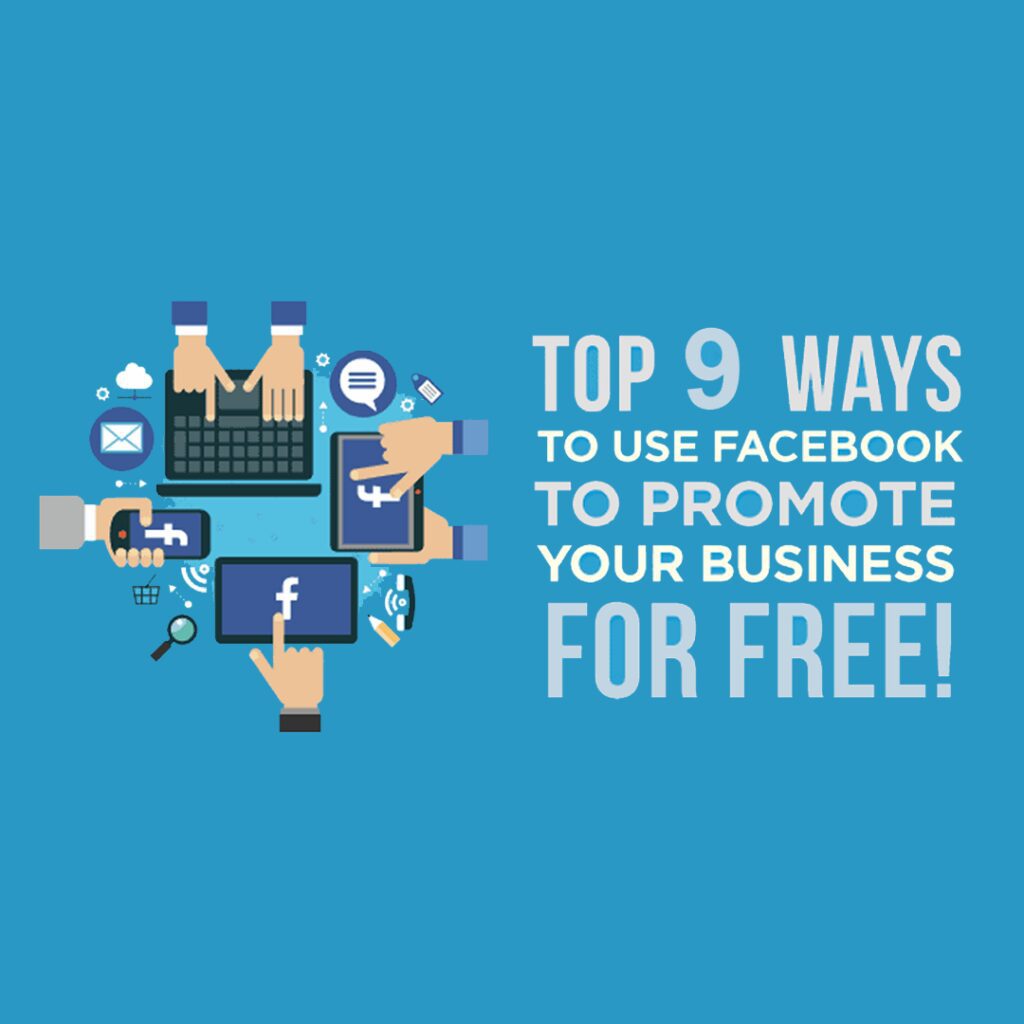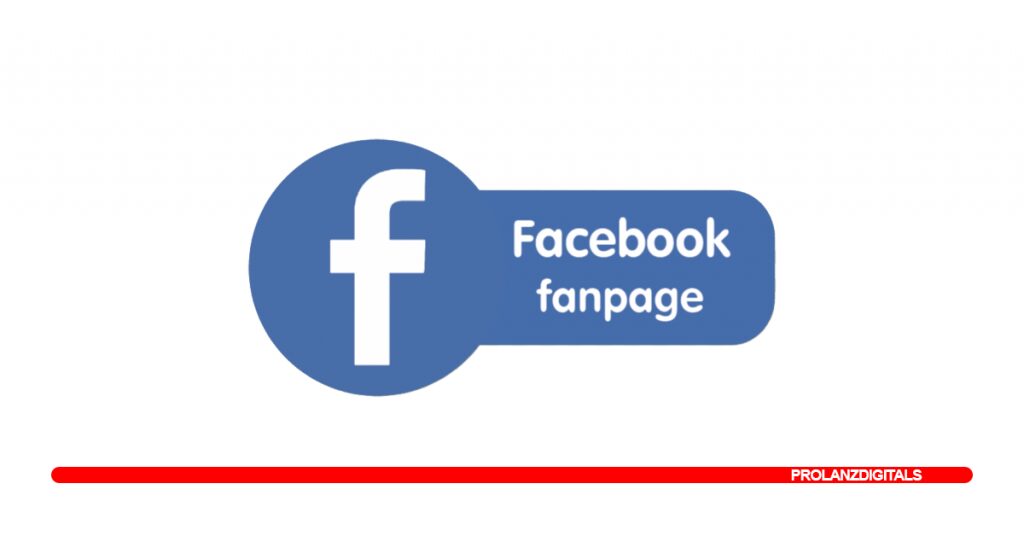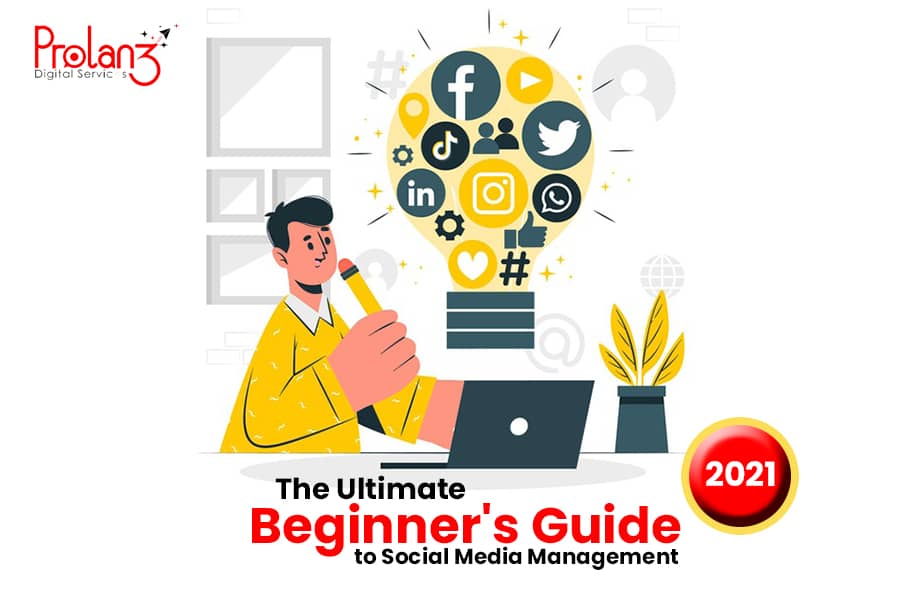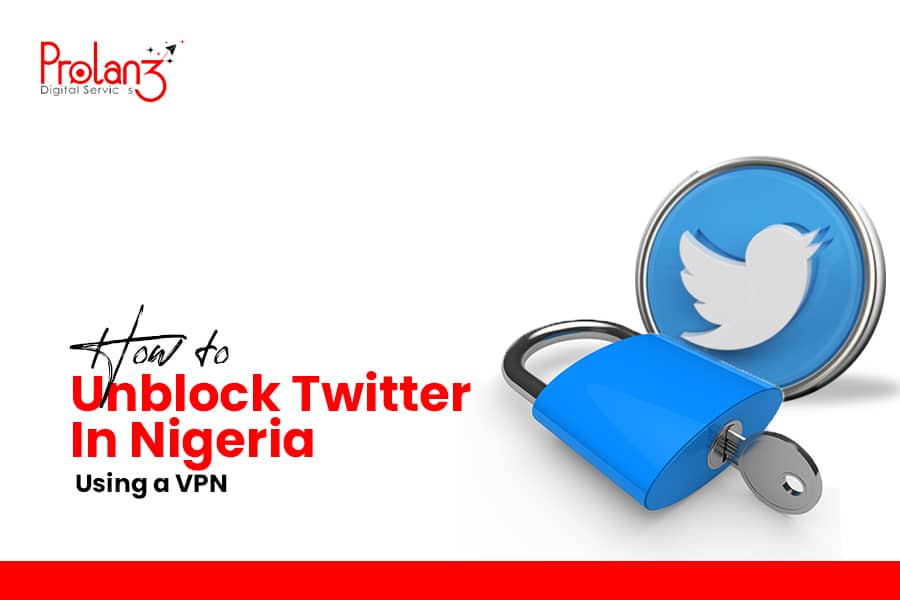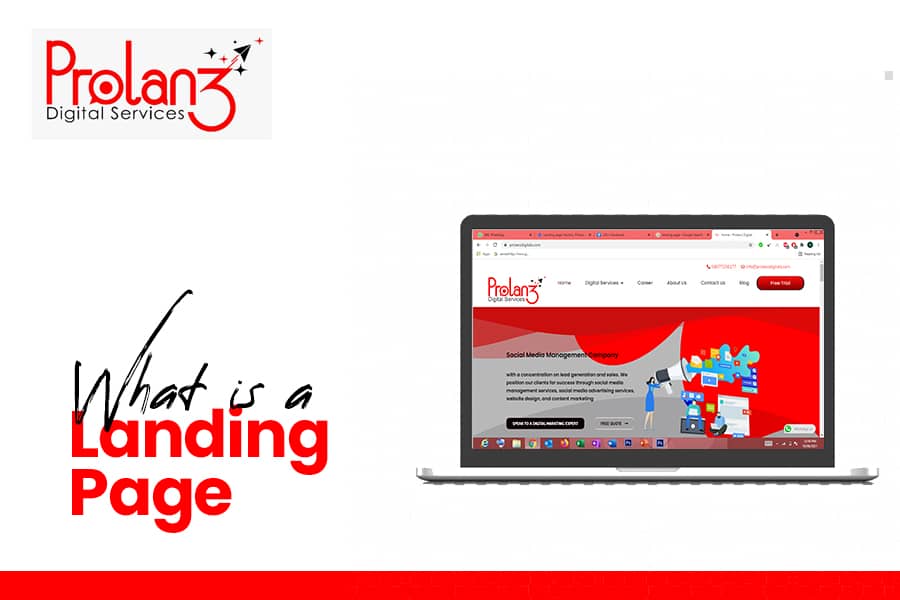Every business in Nigeria wants one thing: results. You want to attract more customers, boost your sales, and dominate your industry. But the question remains – should you invest in SEO or Google Ads?
These two strategies can bring sales for your business, but knowing which is better for you is the key. In this blog post, we’ll break it down for you so you can make the best decision and start driving real results.
What is SEO?
Search Engine Optimization, commonly known as SEO, is a strategy used by businesses to make their websites show up at the top of Google search results when people search for specific things. Imagine you’re searching for “best shoes in Lagos” on Google.
The websites that appear at the top of the list didn’t just end up there by chance—they used SEO to improve their chances of being noticed by you and other searchers.
At its core, SEO is about helping search engines, like Google, easily understand what your website is about, so they know when to show it to people who are searching for things related to your business.
It’s like making your website more visible and attractive to Google so it can rank you higher than other websites.
Get massive sales this month
What are Google Ads?
Google Ads is a way for businesses to pay Google to show their websites or products at the top of search results when people look for certain things online.
Think about the last time you searched for something like “best restaurants in Lagos.” At the top of the page, you might have seen some websites marked as “Ad.” These are Google Ads. Businesses pay to have their websites show up here so that they can get more visitors and sell their products or services faster.
In simple terms, Google Ads is an advertising platform that allows businesses to place their websites, products, or services in front of people who are searching for specific keywords.
Unlike SEO, which is about ranking your website naturally over time, Google Ads is a paid method to get instant results. With Google Ads, you can be at the top of the search results immediately after setting up your campaign.
How Google Ads Works
Google Ads works through a bidding system. It’s similar to an auction where businesses bid money for certain keywords. If you win the bid, your ad appears at the top of the search results when someone types in that keyword.
For example, if you sell shoes in Lagos, you might bid on the keyword “buy shoes in Lagos.” When someone searches for this, your ad will show up in the search results.
Types of Google Ads
Google Ads offers different types of ads, and each one works a little differently to help you achieve your business goals. Here are the main types:
1. Search Ads
These are the most common types of ads, and they appear at the top of Google search results. When someone searches for something related to your business, your ad shows up first. For example, if you own a car rental service, your ad might appear when someone searches for “rent a car in Lagos.”
2. Display Ads Display ads
These are visual ads that appear on websites across the internet. These are often banner ads you see when browsing through blogs, news websites, or other sites that partner with Google. Display ads are great for increasing brand awareness because they allow you to show images of your products to a wide audience.
3. Video Ads
You’ve probably seen ads play before or during a YouTube video—those are video ads. Google owns YouTube, so you can run video ads through Google Ads. This is a great way to engage people visually, especially if you have a product or service that looks better when demonstrated in a video.
4. Shopping Ads
These ads are specifically for businesses selling products online. They show images of your products, the price, and a link to your website where customers can buy them. For example, if you sell phones, your ad might show a picture of the phone, its price, and a “Buy Now” button when someone searches for “buy smartphones in Nigeria.
Get massive sales this month
1. Traffic: SEO vs Google Ads
When we talk about traffic, we mean the number of visitors who come to your website. In the battle of SEO vs Google Ads, both can drive traffic, but they do it in very different ways. Let’s break it down so you can understand how they work and which one might be better for your business.
SEO Traffic
SEO (Search Engine Optimization) is about getting organic traffic—that’s free traffic you don’t have to pay for directly. When you optimize your website using SEO, you’re making it easier for search engines like Google to find and understand your content.
Over time, this helps your website rank higher in the search results for certain keywords. For example, if you sell electronics in Nigeria and use the keyword “buy electronics online in Nigeria,” SEO can help your website show up when people search for that phrase.
The best part about SEO traffic is that once your website starts ranking high, you can get a steady stream of visitors without paying for each one. However, SEO can take time—sometimes months—to really kick in. That’s because you need to build up your website’s authority, create valuable content, and optimize for the right keywords. The payoff is that once you’re ranked, you’ll enjoy free, ongoing traffic as long as your site stays relevant.
It’s like planting a tree: it takes time to grow, but once it does, it provides fruit year after year.
Google Ads Traffic
On the other hand, Google Ads is a form of paid advertising that delivers instant traffic. With Google Ads, you pay Google to show your website at the top of search results when people search for certain keywords.
For example, if you bid on the keyword “best smartphones in Nigeria,” your ad will appear at the top of the search results right away, even above websites that are ranking there organically.
Unlike SEO, where you wait for your rankings to improve, Google Ads traffic is immediate. As soon as your ad campaign is live, you can start getting visitors to your site.
However, this traffic comes at a cost: you have to pay for each click on your ad. This is known as Cost Per Click (CPC). So, while Google Ads can bring fast results, you have to keep paying to maintain that traffic.
Once you stop paying, the traffic stops.
Get massive sales this month
2. Placement: SEO vs Google Ads
When we talk about placement in the context of SEO vs Google Ads, we’re referring to where your website or ad appears when someone searches for something on Google.
Placement is crucial because it determines how easily people can find your business. Both SEO and Google Ads can get your business in front of potential customers, but they do it in different ways.
Placement with SEO
Organic results are the free listings that appear under the paid ads on Google. When someone searches for something like “best restaurants in Lagos,” the top results (under the ads) are ranked based on how well the website is optimized for SEO.
If your website is well-optimized, it can appear on the first page of search results without you having to pay for it.
The goal of SEO is to get your website to rank as high as possible in the organic listings. The higher your website ranks, the more likely people are to click on it. Research shows that most people don’t scroll past the first page of Google, and the top three results get the most clicks. So, placement with SEO is all about getting your site to the top of the search results, ideally on the first page.
However, it’s important to note that SEO placement takes time. You need to continuously optimize your website for months.
Placement with Google Ads
Google Ads allows you to place your website or product right at the top of the search results. You’ve probably seen websites marked with “Ad” at the very top when you search for something—that’s the placement you get with Google Ads.
You can also have your ad show up at the bottom of the page, but most businesses aim for the top because it’s the most visible spot.
Unlike SEO, where you have to wait for your website to naturally rise in the rankings, Google Ads placement happens instantly. You pay Google to place your ad at the top of the search results when people type in certain keywords.
For example, if you sell clothing and someone searches for “buy clothes in Lagos,” your ad could appear at the very top of the page, above all the organic results.
This type of placement is called paid placement because you’re paying for that prime spot.
However, just because you’re paying doesn’t mean you automatically get the top spot. Google Ads uses a bidding system, where businesses compete for the same keywords. The more you’re willing to pay per click, the better your chances of getting placed at the very top.
Get massive sales this month
3. Budget & Cost: SEO vs Google Ads
In the comparison of SEO vs Google Ads, each option works differently when it comes to the money you spend and what you get in return.
SEO Costs
SEO (Search Engine Optimization) can seem “free” because you don’t pay Google directly to rank your website in the search results. However, SEO still has costs—just not the same kind as Google Ads.
When you invest in SEO, you’re paying for things like:
- Hiring an SEO expert or agency to optimize your website.
- Creating high-quality content that is keyword-rich.
- Improving your website’s speed, structure, and design.
- Building backlinks from other trusted websites.
- Using SEO tools to track and improve your rankings.
So, while you’re not paying for each click or visitor, you’re investing in improving your website’s ranking over time. Once you’ve made that investment, the traffic you get from SEO is free. You don’t have to pay for each person who clicks on your website, which is why SEO is often considered a long-term investment.
However, SEO takes time—sometimes several months—to show real results. You won’t see instant traffic like you would with Google Ads, but the cost of SEO in the long run is lower because, once your website is optimized and ranks well, the traffic keeps coming without additional costs.
Google Ads Costs
On the other hand, Google Ads works on a pay-per-click (PPC) model. This means you pay every time someone clicks on your ad. The amount you pay per click can vary depending on how competitive the keyword is.
For example, if many businesses are bidding on the keyword “buy shoes in Lagos,” the cost per click will be higher because there’s more competition.
When using Google Ads, you set a daily or monthly budget for how much you’re willing to spend on clicks. Once that budget is used up, your ads will stop showing until you add more money.
This means that while Google Ads can bring fast traffic, you have to keep paying for every visitor that comes to your site. If you stop paying for ads, your traffic also stops immediately.
In terms of SEO vs Google Ads, Google Ads can be more expensive in the long run because you have to continuously invest money to keep getting traffic. It’s like renting a car: as long as you keep paying, you can keep driving, but if you stop paying, the car is taken away.
Get massive sales this month
4. Keyword Selection: SEO vs Google Ads
When we talk about keyword selection, it’s all about picking the right words and phrases people search for when they use Google. The way you pick and use keywords in SEO vs Google Ads is quite different.
Keyword Selection for SEO
In SEO (Search Engine Optimization), keyword selection is a critical part of making sure your website ranks high in search results.
To get it right, you need to think about the words or phrases that people are likely to type into Google when they are looking for something that you offer. These words are called “keywords.”
When you’re optimizing for SEO, you typically focus on:
- Long-tail keywords: These are more specific phrases, like “best running shoes for kids in Nigeria.” Long-tail keywords are easier to rank for because fewer websites compete for them.
- Short-tail keywords: These are broader terms like “running shoes.” While short-tail keywords get more searches, they are much harder to rank for because of competition.
The key to good SEO is to balance between the two types of keywords. You want to target keywords that are not too competitive, but still have enough people searching for them.
When you get your keyword selection right for SEO, your website will start to show up in Google search results when people search for these terms. The better your keyword matches the searcher’s intent, the higher your page will rank.
Keyword Selection for Google Ads
For Google Ads, keyword selection works a bit differently. Instead of trying to rank organically, you’re bidding on keywords.
When you create a Google Ads campaign, you choose the keywords you want to bid on, and when someone searches for those words, your ad may show up at the top of the search results..
In Google Ads, you can use:
- Broad match keywords: Your ad shows up for any search that includes your keyword, even if the searcher uses different phrases. For example, if your keyword is “running shoes,” your ad might show up for “best running shoes,” “affordable sneakers,” or even “shoes for running.”
- Phrase match keywords: Your ad will only show up when someone’s search includes your exact keyword phrase. If you’re using “best running shoes,” your ad will only appear when those words are part of the search.
- Exact match keywords: Your ad will only show when someone searches for the exact term you’ve chosen, like “running shoes for kids.”
The advantage of Google Ads is that you get to see instant results. Once you select and bid on your keywords, your ad can appear right away, and you can start getting traffic immediately. However, you have to be careful with how much you spend on each keyword. If you pick very competitive keywords, like “best shoes in Lagos,” the cost per click could be high, meaning you’ll spend more money each time someone clicks on your ad.
Get massive sales this month
5. Speed of Results: SEO vs Google Ads
When it comes to how fast you can get results from SEO vs Google Ads, the two strategies work very differently. Some businesses need fast results, while others can afford to wait for a longer-term payoff.
Time to Get Results with SEO
SEO (Search Engine Optimization) takes time to show results. It’s like planting a tree: you have to nurture it for a while before it starts bearing fruit.
Here’s why SEO takes time:
1. Google’s Ranking Process
Google’s search algorithm looks at a lot of factors to decide where your website should rank. These include things like how well your content matches the keywords, how many other websites link to your site (backlinks), and how good the user experience is on your site. It takes time for Google to notice these improvements and move your site up the rankings.
2. Competition
If you’re in a highly competitive industry, it will take even longer to see results. For example, if many businesses are competing for the same keywords, it will take time for your site to rank higher than theirs. You have to continually update and improve your content to stay ahead.
3. Long-term Growth
The biggest advantage of SEO is that once your website starts ranking high in search results, it can stay there for a long time. The traffic you get is free, and you don’t have to pay for each visitor. However, because it’s a long-term strategy, you need to be patient. It could take anywhere from 3 to 6 months before you see significant improvements.
Time to Get Results with Google Ads
Google Ads, on the other hand, delivers results almost immediately. If SEO is like planting a tree, Google Ads is like buying fruit from the store—you get it instantly, but you have to pay for it. As soon as you set up your Google Ads campaign and start bidding on keywords, your ads can start showing up in the search results. You don’t have to wait for months like you do with SEO.
Here’s why Google Ads is faster:
1. Immediate Placement
With Google Ads, you’re paying Google to place your ad at the top of the search results. As soon as your campaign is live, your ad can start showing for your target keywords, and you can get clicks right away. This means you’ll start seeing traffic to your website almost instantly.
2. Bidding on Keywords
The only delay you might face with Google Ads is in the bidding process. If you’re in a competitive industry, you might need to increase your bids to outbid competitors and get your ad to show more often. However, this is a much faster process than waiting for SEO rankings to improve.
3. Fast Feedback
With Google Ads, you can quickly see which keywords and ads are performing well. This means you can adjust your campaign in real-time to improve performance. If one ad isn’t getting clicks, you can change it right away. This flexibility is one of the main reasons businesses choose Google Ads over SEO when they need quick results.
Get massive sales this month
6. Performance Measurement: SEO vs Google Ads
When it comes to measuring how well your marketing strategies are working, SEO vs Google Ads offer different ways to track and measure performance. Both of these methods give you insights into how your campaigns are performing, but they do so in different ways.
Performance Measurement of SEO
Here’s how you can track and measure the success of your SEO efforts:
1. Organic Traffic
One of the easiest ways to measure SEO performance is by looking at your organic traffic. Organic traffic refers to the visitors who come to your website through search engines without you having to pay for it. By using tools like Google Analytics, you can track how much organic traffic your website is getting. A steady increase in organic traffic is a sign that your SEO efforts are working.
2. Keyword Rankings
A core part of SEO is ranking well for specific keywords. You can track how your website is ranking for the keywords you’ve targeted. If your ranking improves over time, that means your SEO strategies are successful. Many tools, like Google Search Console or SEMrush, can help you monitor your keyword rankings.
3. Bounce Rate and Time on Site
SEO performance can also be measured by how engaged visitors are when they land on your site. A low bounce rate (when people stay on your site instead of leaving quickly) and a long time spent on your website are signs that your SEO is driving quality traffic. If users are sticking around and interacting with your content, your SEO is doing its job.
4. Conversion Rate
Another key metric for measuring SEO success is the conversion rate. A conversion happens when a website visitor completes a desired action, like making a purchase or signing up for a newsletter. By tracking how many visitors turn into paying customers or leads, you can tell whether your SEO is bringing in the right kind of traffic.
Performance Measurement of Google Ads
Here are the key ways to track how well your Google Ads are doing:
1. Click-Through Rate (CTR)
One of the first things to look at is the click-through rate (CTR). CTR tells you how often people who see your ad actually click on it. A higher CTR means your ad is relevant and engaging to the audience. If your CTR is low, you might need to tweak your ad copy or keywords.
2. Cost-Per-Click (CPC)
Cost-per-click is another key metric for Google Ads. This tells you how much you’re paying each time someone clicks on your ad. By tracking your CPC, you can manage your advertising budget better. A lower CPC means you’re getting clicks at a cheaper rate, which is great for your ROI.
3. Conversions and Conversion Rate
Just like with SEO, the conversion rate is an important measure of success for Google Ads. In Google Ads, a conversion happens when someone clicks on your ad and completes a desired action, like making a purchase or filling out a contact form. You can track the number of conversions your ads are generating and compare that to your budget. A high conversion rate means your ads are targeting the right people.
4. Quality Score
Google Ads also uses a Quality Score to measure the effectiveness of your ads. This score is based on the relevance of your keywords, the quality of your ad copy, and the experience users have on your landing page. A higher Quality Score can lead to better ad placements and lower costs per click.
Google Ads vs SEO: Which Is Better for Your Business in Nigeria?
Let’s look at scenarios where SEO might be better, and situations where Google Ads could give you an advantage.
Scenario 1: If You Want Quick Results
If you need fast results, Google Ads is the better option.
For example, if you own a new restaurant in Lagos and want people to know about it quickly, Google Ads can help you bring in traffic within hours of launching your campaign.
This makes Google Ads perfect for businesses that need quick traffic or have a specific promotion they want to advertise in a short amount of time.
Scenario 2: If You Want Long-Term Results
If you’re thinking about the long-term success of your business, SEO is the better option.
For instance, if you have a real estate agency in Abuja and you want your website to show up when people search for “houses for sale in Abuja,” SEO will help you achieve that. Over time, if your site ranks higher, you’ll get consistent traffic from search engines without having to pay for each visit.
Scenario 3: If You Have a Small Budget
If your business in Nigeria is working with a small budget, SEO might be the better choice in the long run. While it’s true that SEO can be costly upfront—because you may need to hire professionals to optimize your site—it doesn’t require constant spending like Google Ads.
Scenario 4: If You’re In a Competitive Industry
For businesses in highly competitive industries, SEO and Google Ads can complement each other. Everyone is fighting for the top spot on Google these days.
Even if your site doesn’t rank on the first page organically, you can still appear at the top of the search results through paid ads.
Scenario 5: If You Want to Dominate Search Results
If your goal is to dominate the search results in Nigeria, using both SEO and Google Ads together can be a powerful strategy.
Imagine you own a hotel in Abuja and want to show up every time someone searches for “best hotels in Abuja.”
With SEO, you can work to get your website ranking at the top of the organic search results. At the same time, you can use Google Ads to place your ad above the organic results, doubling your chances of getting noticed by searchers.
Conclusion
SEO vs Google Ads – Which Is Better for Your Business in Nigeria?
There’s no one-size-fits-all answer. The right strategy depends on your business goals, budget, and the timeframe you’re working with. If you need quick results and are ready to pay for clicks, Google Ads will get you immediate visibility. If you’re focused on building long-term, sustainable traffic, SEO is the better choice.
Many businesses in Nigeria use both SEO and Google Ads together to maximize their online presence. By combining these strategies, you can enjoy the fast results of Google Ads while building a strong foundation with SEO for long-term success.
Get Real Sales for Your Business
At Prolanz Digital, we specialize in driving real sales for Nigerian businesses with both Google Ads and SEO strategies. Our Google Ads strategies have generated tens of millions in sales for clients within the past eight months. Meanwhile, our SEO experts have helped businesses rank #1 on Google, bringing organic traffic that consistently converts to sales.
Get massive sales this month
FAQs on Google Ads vs SEO
1. Is SEO more effective than Google Ads?
SEO is more effective for businesses looking for long-term results. It helps your website rank higher in organic search results, meaning that people will find your site without you having to pay for every click. However, Google Ads can be more effective if you’re looking for immediate results or want to promote a time-sensitive offer. The main difference lies in time and budget. SEO takes time to build up but doesn’t require ongoing payments for clicks, while Google Ads can get you instant traffic, but you pay for each click.
SEO is better for sustainable traffic, while Google Ads works well for quick traffic.
2. Should I run Google Ads for my business?
Yes, if you’re looking to quickly generate traffic and sales, running Google Ads for your business can be an effective strategy. Google Ads lets you target specific customers by using the right keywords, and your ads will appear when people search for those terms. This makes it easier to attract customers who are ready to buy. However, if you’re focused on long-term growth, combining Google Ads with SEO could give you the best results.
In the comparison of SEO vs paid ads, Google Ads is a good solution for immediate results, while SEO builds your online presence over time.
3. Does SEO really work for small businesses?
Yes, SEO works very well for small businesses because it helps them compete with larger companies without having to spend as much money on advertising. By optimizing their websites and content, small businesses can rank high in Google’s search results, bringing in traffic and sales without paying for ads. Over time, SEO helps establish credibility and trust, which is especially important for small businesses trying to grow.
In the battle of SEO vs Google Ads, SEO is often better for small businesses with limited budgets because it provides long-term value.
4. Which is more profitable, Google Ads or Facebook Ads?
The profitability of Google Ads vs Facebook Ads depends on your business type and audience. Google Ads often works best for businesses offering products or services that people actively search for, while Facebook Ads works well for visually driven campaigns or targeting specific interests. In terms of direct sales, many businesses find Google Ads more profitable because it targets people actively searching for a solution. Facebook Ads, on the other hand, is great for raising brand awareness.
When comparing SEO vs paid ads, both Google Ads and Facebook Ads can be profitable, but Google tends to be better for driving direct sales, while Facebook is more suited for building brand recognition.
5. Should I learn SEO or Google Ads first?
This depends on your business goals. If you want to generate quick traffic and sales, learning Google Ads first is a smart move because you can set up campaigns and see results quickly. However, if you’re focused on long-term business growth, learning SEO first will help you build a foundation of organic traffic that doesn’t require constant ad spend.
When deciding between SEO vs Google Ads, learning SEO helps you create long-lasting results, while learning Google Ads helps you drive immediate traffic.
6. Is Google Ads really profitable?
Yes, Google Ads can be highly profitable, especially if used correctly. When you target the right keywords and optimize your ads, Google Ads can generate significant traffic and sales for your business. However, it’s important to continuously monitor and tweak your campaigns to ensure you’re getting the best return on investment (ROI).
In the comparison of SEO vs Google Ads, Google Ads provides quick profits, but SEO can deliver sustained results over time without ongoing costs per click.
7. What are the disadvantages of Google Ads?
While Google Ads offers immediate traffic, it comes with certain disadvantages. First, it can be expensive, especially in competitive industries where the cost per click (CPC) is high. Also, as soon as you stop paying, the traffic stops. With SEO, on the other hand, your traffic continues to grow even after you stop actively working on it.
This is why SEO vs paid ads often becomes a debate about cost. SEO is more cost-effective long term, while Google Ads provides immediate results but requires ongoing payments.
8. What types of businesses should use Google Ads?
Businesses that need quick traffic or want to promote a time-sensitive offer should use Google Ads. This includes e-commerce businesses with frequent sales, service-based businesses looking to attract immediate leads, or new businesses trying to get visibility quickly. Google Ads works well for businesses in competitive markets where ranking organically might take too long.
In the debate of SEO vs Google Ads, businesses looking for short-term gains or seasonal promotions should lean toward Google Ads, while SEO works better for long-term growth.
9. How much do Google Ads cost per month?
The cost of Google Ads per month varies depending on factors like your industry, target audience, and the keywords you’re bidding on. Some businesses may spend as little as $100 per month, while others may spend thousands. The key is to set a budget that makes sense for your business and monitor your campaigns to ensure you’re getting a good return on investment (ROI).
Comparing SEO vs paid ads, Google Ads tends to have a monthly cost, while SEO is more of a one-time or ongoing investment without the need to pay for each visitor.
10. Can a business survive without SEO?
Yes, a business can survive without SEO, but it may miss out on significant opportunities to attract organic traffic. Without SEO, you’ll likely have to rely more on paid ads or other marketing strategies to bring in customers. Over time, this can become expensive, especially compared to the long-term benefits of SEO, which helps your website rank higher and brings in traffic for free.
In the SEO vs paid ads debate, SEO is essential for businesses looking to minimize costs and build a lasting online presence.
11. Can you still make money with SEO?
Absolutely, SEO can help you make money by driving free, organic traffic to your website. When done correctly, SEO helps your website rank higher on search engines, which brings in more visitors, leads, and sales. The great thing about SEO is that, once you achieve good rankings, the traffic continues to flow without having to pay for each visit.
Comparing SEO vs Google Ads, SEO is a long-term investment that can bring in more consistent revenue over time, while Google Ads offers quicker, but more costly, results.
12. How much money do you need for SEO?
The cost of SEO depends on several factors, including the size of your website, your industry, and how competitive your keywords are. Small businesses might spend anywhere from a few hundred to several thousand dollars per month on SEO services. While the initial investment may seem high, the long-term benefits often outweigh the costs.
In terms of SEO vs paid ads, SEO is typically more affordable in the long run because you don’t have to pay for each click or impression, unlike Google Ads.
13. Why is Google Ads better than SEO?
Google Ads is better than SEO when you need quick results, such as driving traffic to a new website or promoting a limited-time offer. With Google Ads, you can target specific keywords and have your ad displayed at the top of search results immediately. SEO, on the other hand, takes time to build up and requires ongoing effort before you see results.
In the discussion of SEO vs Google Ads, Google Ads is ideal for short-term campaigns or immediate traffic, while SEO is better for long-term growth.
14. What is better than Google Ads?
For long-term growth and sustainable traffic, SEO is often considered better than Google Ads. Once your website is optimized and ranks high in search results, you’ll receive organic traffic without paying for each click. However, other platforms like Facebook Ads or Bing Ads can also be more suitable than Google Ads depending on your audience and goals.
In the debate of SEO vs Google Ads, SEO is better for businesses that want to build a long-lasting online presence, while Google Ads is better for immediate traffic.
15. What industry uses Google Ads the most?
Industries that rely heavily on direct response marketing, like e-commerce, travel, and real estate, often use Google Ads the most. These industries benefit from the immediate traffic and quick results that Google Ads can provide. Service-based businesses like plumbers, electricians, and lawyers also frequently use Google Ads to attract customers.
In terms of SEO vs Google Ads, industries that need quick leads tend to favor Google Ads, while industries looking to build long-term credibility often prefer SEO.
16. Is SEO better than paid ads?
In many cases, SEO is better than paid ads because it offers long-term benefits without the need for ongoing payments. Once your website ranks organically, you’ll continue to get traffic for free. Paid ads, on the other hand, require you to pay for each click, which can become expensive over time.
Comparing SEO vs paid ads, SEO is better for sustainable traffic, while paid ads are great for short-term promotions and immediate visibility.
17. How many days will it take to learn Google Ads?
Learning the basics of Google Ads can take anywhere from a few days to a couple of weeks, depending on your dedication and the resources you use. However, mastering Google Ads and optimizing campaigns for the best results can take several months of practice.
In the debate of SEO vs Google Ads, Google Ads can be quicker to learn, but both require ongoing adjustments for the best performance.
18. Does Google Ads count as SEO?
No, Google Ads does not count as SEO. Google Ads is a form of paid advertising where you pay for your website to appear at the top of search results. SEO, on the other hand, involves optimizing your website to rank higher in organic search results without paying for ads.
In the discussion of SEO vs Google Ads, Google Ads provides paid traffic, while SEO focuses on earning organic traffic.
19. How long does it take Google Ads to work?
Google Ads can start working almost immediately. Once your campaign is live, your ads can begin appearing in search results within a few hours. However, optimizing your campaigns for the best results can take time, and you may need to adjust your keywords, ad copy, and targeting to maximize your return on investment.
When comparing SEO vs Google Ads, Google Ads offers faster results, while SEO takes longer to show results but provides more sustainable traffic.
20. Does Google Ads pay you?
No, Google Ads does not pay you. Instead, you pay Google to have your ads displayed when people search for certain keywords. However, you can make money through Google Ads by driving traffic to your website and converting that traffic into sales or leads.
In the comparison of SEO vs Google Ads, Google Ads requires you to pay for traffic, while SEO helps you earn traffic organically.
21. Do Google Ads increase sales?
Yes, Google Ads can significantly increase sales if your campaigns are set up and optimized correctly. By targeting the right audience with the right keywords, Google Ads puts your business in front of potential customers who are actively searching for your products or services. This targeted approach makes it easier to convert clicks into sales. However, success depends on how well you manage your campaigns, including your ad copy, landing pages, and bids.
When comparing SEO vs Google Ads, Google Ads can increase sales quickly, while SEO is better for building long-term sales over time without ongoing ad spend.
22. Which is better, SEO or Facebook ads?
The choice between SEO and Facebook ads depends on your business goals. SEO is better if you want to build long-term organic traffic that doesn’t require paying for each visitor. It helps you rank high in search engine results and brings in a consistent flow of traffic. On the other hand, Facebook ads are better for raising brand awareness or targeting users based on their interests and behaviors. Facebook is more suited for visually driven ads or for reaching people who may not be actively searching for your product or service.
In terms of SEO vs paid ads, SEO builds long-term trust, while Facebook ads are better for immediate visibility and targeting specific demographics.
23. Does SEO really increase sales?
Yes, SEO can definitely increase sales by bringing more organic traffic to your website. When your website ranks higher in search results, more people find it, leading to more opportunities for conversions. SEO also helps attract users who are actively searching for what you offer, which increases the chances of them making a purchase. However, SEO takes time to work, so you won’t see immediate sales like you would with paid ads.
In the debate of SEO vs Google Ads, SEO increases sales gradually and sustainably, while Google Ads can provide faster results but with a cost for each click.
24. Should I pay monthly for SEO?
Paying monthly for SEO can be a good strategy if you want ongoing improvements to your website’s rankings. SEO is not a one-time task but rather a continuous process of optimizing your site for search engines and maintaining its rankings. Monthly SEO services often include keyword research, content updates, backlink building, and performance monitoring, which help you stay competitive.
In the comparison of SEO vs Google Ads, monthly SEO payments build long-term traffic without needing to pay for each visit, unlike Google Ads.
25. Can I do SEO myself?
Yes, you can do SEO yourself, especially if you are willing to invest the time in learning the necessary skills. There are many resources online that teach the basics of SEO, such as keyword research, on-page optimization, and link building. However, SEO can be complex and time-consuming, so many businesses choose to hire professionals for better results.
When considering SEO vs paid ads, DIY SEO is a cost-effective option for businesses with limited budgets, while paid ads may require less time to manage but come with ongoing costs.
26. How much does SEO cost for a small business?
The cost of SEO for a small business can range from a few hundred to several thousand dollars per month, depending on the level of service and competition in your industry. Small businesses with limited budgets can start with basic SEO services like on-page optimization and gradually invest in more advanced strategies like link building and content marketing.
In the comparison of SEO vs Google Ads, SEO tends to be more affordable over time because it doesn’t require ongoing payments for clicks like Google Ads.
27. Can I do SEO without paying?
Yes, you can do some aspects of SEO without paying, but it requires time and effort. You can optimize your website’s content, improve site speed, and use free tools for keyword research and performance tracking. However, some SEO strategies, like acquiring high-quality backlinks or creating professional content, may require investment.
When comparing SEO vs paid ads, SEO can be done with minimal costs, unlike Google Ads, where you pay for each click.
28. Is SEO more important than ads?
Both SEO and ads play important roles in digital marketing, but SEO is more important for long-term growth. SEO builds organic traffic over time, which doesn’t require you to pay for each visitor. Paid ads, like Google Ads, are useful for immediate traffic and quick results, but they stop generating traffic once you stop paying.
In the debate of SEO vs paid ads, SEO is generally considered more important for sustainable growth, while ads are better for short-term campaigns or promotions.
29. Can you become a millionaire from SEO?
While SEO itself may not make you a millionaire, it can significantly contribute to your business’s success by driving organic traffic and increasing sales. Many businesses have scaled their operations and increased profits dramatically thanks to successful SEO strategies. The more visibility and traffic your website gets, the more sales and revenue opportunities you’ll have.
In the comparison of SEO vs Google Ads, SEO provides a long-term foundation for growth, which could potentially lead to greater financial success.
30. How can I increase sales quickly with SEO?
Increasing sales quickly with SEO can be challenging because SEO typically takes time to show results. However, you can speed up the process by focusing on high-intent keywords, optimizing your website for conversions, and improving the user experience. Also, creating high-quality content that addresses your audience’s needs can drive more organic traffic and increase sales faster.
In the discussion of SEO vs Google Ads, if you’re looking to increase sales quickly, Google Ads might be more effective initially, while SEO builds over time.
31. Which is more profitable, Google Ads or Facebook ads?
The profitability of Google Ads versus Facebook ads depends on your business type and target audience. Google Ads tends to be more profitable for businesses that sell products or services people actively search for, while Facebook ads are better for raising awareness and targeting users based on interests. In general, Google Ads drives more direct sales, while Facebook ads excel at building brand awareness and engagement.
In the comparison of SEO vs paid ads, both platforms can be profitable, but Google Ads often generates faster results, while Facebook may require more nurturing.
32. What kind of ads are most successful on Facebook?
The most successful ads on Facebook are those that use engaging visuals, clear calls to action, and precise audience targeting. Ads that tell a story, show user-generated content, or use video formats tend to perform well. Facebook’s strength lies in its ability to reach users based on their interests, demographics, and behaviors, making it ideal for brand-building campaigns.
In the debate of SEO vs paid ads, Facebook ads excel in visual and targeted marketing, while Google Ads focuses more on keyword-driven searches.
33. Should I learn Google or Facebook ads?
Whether you should learn Google Ads or Facebook ads first depends on your business goals. If you want to target users who are actively searching for your product or service, Google Ads is a good choice. On the other hand, if you want to build brand awareness or target users based on their interests, learning Facebook ads could be more beneficial. Both platforms are valuable tools, but Google Ads tends to drive more immediate sales.
In the comparison of SEO vs Google Ads, learning Google Ads helps you generate immediate traffic, while SEO builds organic traffic over time.
34. Can Google Ads make you money?
Yes, Google Ads can make you money if you set up and manage your campaigns correctly. By targeting the right keywords and optimizing your ad copy, Google Ads can drive relevant traffic to your website, leading to sales and profits. However, you need to continuously monitor and tweak your campaigns to ensure you’re getting a positive return on investment (ROI).
In the comparison of SEO vs paid ads, Google Ads can quickly generate profits, while SEO builds long-term value that can generate money without ongoing ad spend.
35. How long does it take to get sales from Google Ads?
You can start seeing sales from Google Ads almost immediately, as your ads can appear in search results as soon as your campaign goes live. However, optimizing your campaigns to get the best results can take time. You may need to adjust your keywords, bids, and ad copy before you see consistent sales.
In the comparison of SEO vs Google Ads, Google Ads provides faster results, while SEO typically takes longer to generate sales but offers long-term benefits.
36. Does Google Ads work immediately?
Yes, Google Ads works almost immediately. As soon as your campaign is live and approved, your ads can start appearing in search results or across Google’s advertising network. However, while your ads can start driving traffic right away, it may take some time to optimize your campaign for the best results.
In the discussion of SEO vs Google Ads, Google Ads offers quick traffic, while SEO takes longer to build but creates lasting results.
37. How do I become successful with Google Ads?
To be successful with Google Ads, you need to continuously optimize your campaigns. Start by selecting the right keywords that are relevant to your business, and create compelling ad copy that encourages clicks. Set a clear budget and monitor your campaigns to see which ads perform best. Over time, you can adjust your strategy based on the data to improve your return on investment (ROI).
In the debate of SEO vs paid ads, Google Ads requires regular management for success, while SEO focuses on building long-term results.
38. How many clicks a day for Google Ads?
The number of clicks you get per day from Google Ads depends on your budget, the keywords you’re targeting, and the competition. With a higher budget and less competitive keywords, you could get dozens or even hundreds of clicks per day. On average, businesses might expect anywhere from 10 to 100 clicks per day, depending on their ad spend and industry. It’s important to monitor your campaign and adjust your bids to optimize the number of clicks you’re getting.
When comparing SEO vs Google Ads, Google Ads can give you more control over daily traffic through paid clicks, while SEO drives organic clicks over time, with no per-click cost.
39. Do Google Ads expire?
No, Google Ads campaigns do not have an expiration date unless you set an end date. You can run your ads continuously until you decide to stop them or your budget runs out. You can also pause or modify your ads at any time.
In the comparison of SEO vs Google Ads, Google Ads can be managed actively, while SEO is more of a long-term strategy that doesn’t “expire” once it’s established.
40. Does Google Ads pay off?
Yes, Google Ads can pay off if you manage your campaigns well. By targeting the right audience and optimizing your keywords, you can see a high return on investment (ROI). However, it’s important to monitor performance closely, as it’s easy to overspend on clicks without converting them into sales.
In the debate of SEO vs paid ads, Google Ads can provide quicker returns, while SEO offers a long-term payoff by building organic traffic without the ongoing cost of ads.
41. How do I know if Google Ads is working?
You can tell if your Google Ads campaign is working by tracking key performance metrics such as clicks, impressions, and conversions. Google provides detailed reports that show how your ads are performing, including the number of people who clicked on your ads and how many of those clicks led to sales or other desired actions.
When comparing SEO vs Google Ads, Google Ads offers immediate data to measure performance, while SEO results take longer to analyze but are valuable for long-term insights.
42. What are the best times to run Google Ads?
The best times to run Google Ads depend on your target audience and business. For some businesses, running ads during peak hours (9 a.m. to 6 p.m.) may be ideal, while for others, evening or weekend ads may perform better. You can use Google’s data to see when your ads are getting the most clicks and conversions, then adjust your ad schedule accordingly.
In the comparison of SEO vs paid ads, Google Ads allows you to control when your ads run, while SEO works all the time as long as your content is ranking in search engines.
43. Why am I not getting sales from Google Ads?
There could be several reasons why you’re not getting sales from Google Ads. You may be targeting the wrong keywords, your ad copy might not be compelling enough, or your landing page may not be optimized for conversions. Additionally, if your bids are too low, your ads might not be shown to enough people. It’s important to review all aspects of your campaign to identify where improvements can be made.
In the discussion of SEO vs Google Ads, Google Ads requires constant adjustments to optimize performance, while SEO focuses on long-term optimization of your site and content.
44. How do I generate sales on Google Ads?
To generate sales with Google Ads, you should focus on targeting the right keywords and writing persuasive ad copy. Make sure your landing page is optimized for conversions, with clear calls to action. Continuously monitor your campaigns, adjusting your bids and targeting based on performance data to maximize your return on investment (ROI).
In the debate of SEO vs Google Ads, Google Ads provides an immediate path to sales, while SEO builds long-term organic traffic that can convert over time.
45. How long should you run Google Ads for?
The length of time you should run Google Ads depends on your goals. If you’re running a short-term promotion, you might only need to run ads for a few weeks. For long-term growth, many businesses run ads continuously and adjust their campaigns based on performance. Ideally, you should run Google Ads long enough to gather meaningful data, which could take a few weeks or months.
In the comparison of SEO vs paid ads, Google Ads campaigns are flexible and can be paused or stopped anytime, while SEO takes longer to deliver results but continues to generate traffic once it’s set up.
46. How do I make $100 per day with Google AdSense?
To make $100 per day with Google AdSense, you need a website that gets a large amount of traffic and has high-quality content. The more visitors you have, the more chances they’ll click on the ads displayed on your site. You can increase traffic by focusing on SEO to improve your search engine rankings and drive more organic traffic to your site.
In the comparison of SEO vs paid ads, SEO is essential for building the organic traffic needed to generate consistent revenue through Google AdSense, while paid ads can drive immediate traffic but with additional costs.
47. How much does Google Ads pay per 1,000 views?
Google Ads doesn’t pay you for views; instead, you pay Google for clicks (pay-per-click) or impressions (cost-per-impression). The cost varies depending on the competition for your keywords and industry. For example, the cost-per-1,000 impressions (CPM) might range from a few dollars to much higher in competitive industries.
In the debate of SEO vs paid ads, Google Ads requires businesses to pay per view or click, while SEO focuses on building free, organic traffic.
48. Which Google app gives money?
Google AdSense is the app that allows website owners to earn money by displaying ads on their site. You sign up for AdSense, place ads on your website, and earn money when visitors click on the ads. The amount you earn depends on your website traffic and the types of ads displayed.
In the comparison of SEO vs Google Ads, SEO helps you build the traffic needed for AdSense, while Google Ads can bring immediate visitors but at a cost.
49. Should I learn SEO or Google Ads first?
If you’re focused on long-term growth and organic traffic, learning SEO first is a good option. SEO helps you improve your website’s visibility on search engines without ongoing costs. If you need immediate traffic or want to run short-term campaigns, learning Google Ads first can be more beneficial, as it allows you to target specific users quickly.
In the debate of SEO vs paid ads, Google Ads drives instant traffic, while SEO builds sustainable, long-term traffic over time.
50. Why is SEO better than Google Ads?
SEO is better than Google Ads for long-term, sustainable growth. Once you’ve optimized your site and it ranks well in search results, you don’t need to keep paying for clicks. SEO helps build trust and authority over time, which can lead to consistent traffic and higher conversions. Google Ads, on the other hand, stops generating traffic as soon as you stop paying.
In the comparison of SEO vs paid ads, SEO is often seen as the better long-term investment, while Google Ads is useful for quick, short-term results.
Make massive sales this month
Our Google Ads strategies have generated tens of millions in sales for clients within the past eight months. Our SEO service has helped businesses rank #1 on Google, bringing organic traffic that consistently converts to sales.
Get massive sales this month

